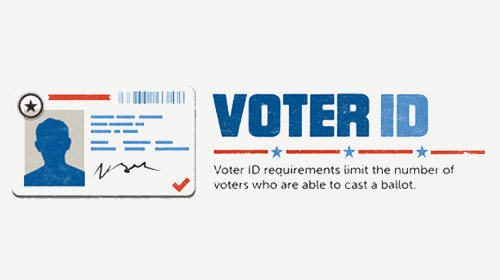Voter ID Trial Day 11: Closing Arguments Delayed as Dispute over Data Continued


The eleventh day of the voter ID trial proved to be an interesting mixture of boredom and drama. After a long trial, everyone involved was looking forward to closing arguments today. Instead, Judge McGinley once again closed the courtroom to everyone but attorneys in the case, leaving the dozen or so journalists and other observers to hang out in the lobby for almost two hours as the two sides continued to tangle over the Department of State (DOS) ID "exception spreadsheet." The debate is a critical one to the case, as it gets to the issue of whether or not these IDs are actually easily accessible for voters.
The DOS exception spreadsheet is a list produced by the Dept. of State of roughly 600 voters who applied for the DOS ID тАУ the ID the commonwealth claims is easily available to all тАУ at PennDOT but who left without the ID in their possession. The debate between the two sides has been whether those individuals did ultimately receive the ID, how long it took, and why there was a delay in processing them. Opposing counsel fought over discussing the issue in open court, claiming that confidential PennDOT information might be revealed. Petitioners provided abundant assurances that no confidential information would be made public and believe that the real reason for the request for a closed courtroom is to keep the problems with the DOS ID system, which has the potential to disenfranchise voters if the law goes into effect, from being discussed publicly.
The morning began with the cross examination by the commonwealth of Bryan Niederberger from BLDS. Mr. Niederberger was a rebuttal witness put on the stand yesterday over the objections of the commonwealth. He produced analyzing multiple documents produced by opposing counsel during discovery and the trial. He examined the data multiple ways, including versions that took into account the commonwealth's disputed claims (they claim that 144 individuals on the list of 600+ names were erroneously included on the exception spreadsheet because they have another form of PennDOT ID). Even assuming the commonwealth's claims are correct, the bottom line is that out of 2,530 people who applied for a DOS ID on or after September 25 (the date the new "streamlined" DOS ID procedure went into effect), at least 56 validly registered voters who went to PennDOT before the November 2012 election did not receive their DOS ID in time for the election. Seven of the 56 never received the ID. (See .) If the voter ID law had been in effect in November, these voters would have been disenfranchised.
Lawyers for the two sides retreated to their respective conference rooms to plan next steps. A clerk for the judge attempted to do some shuttle diplomacy, visiting each side to try to reach an agreement about the data. For a while it looked like the commonwealth was going to call rebuttal witnesses to rebut the petitioners' rebuttal witness.
Journalists and other observers were finally able to enter the courtroom around 11:15 a.m. The commonwealth said it would not call any more witnesses but did file a motion asking the judge to dismiss the case, claiming the petitioners did not have standing. (The motion was not unexpected and is a fairly standard practice.)
In a surprise move, Judge McGinley announced that closing arguments would be today August 1, at 10 a.m. rather than this afternoon. The trial has already lasted several days longer than expected.
Later in the afternoon, the judge issued a scheduling order pushing back the date of his ruling on petitioners' request that the court block enforcement of the voter ID law until a final ruling has been made on the law. Originally due August 9, Judge McGinley will now issue an order on extending the preliminary injunction by August 19, 2013.
Learn more about voter suppression and other civil liberties issues: Sign up for breaking news alerts, , and .



